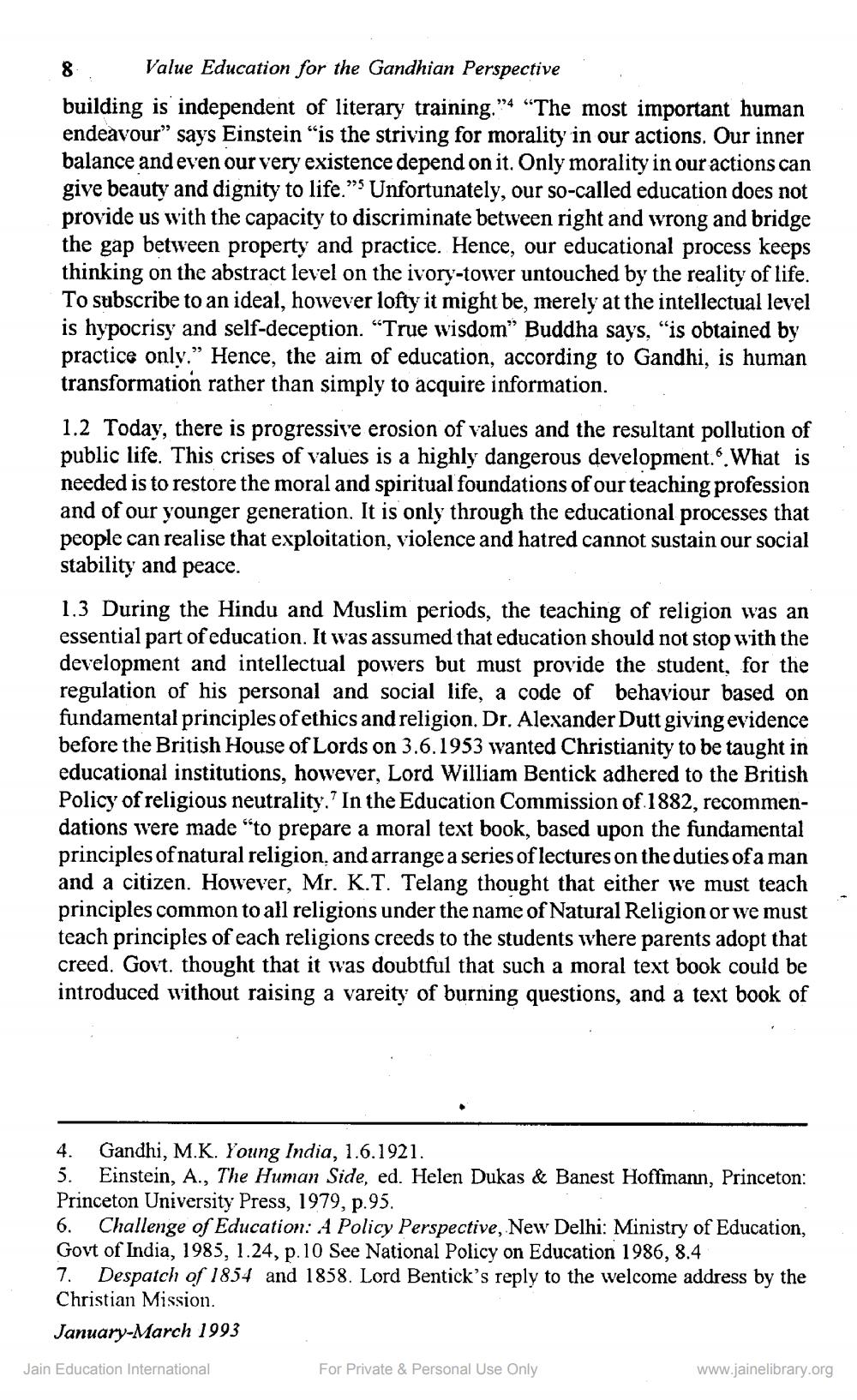________________
8 Value Education for the Gandhian Perspective building is independent of literary training."?4 "The most important human endeavour” says Einstein “is the striving for morality in our actions. Our inner balance and even our very existence depend on it. Only morality in our actions can give beauty and dignity to life." Unfortunately, our so-called education does not provide us with the capacity to discriminate between right and wrong and bridge the gap between property and practice. Hence, our educational process keeps thinking on the abstract level on the ivory-tower untouched by the reality of life. To subscribe to an ideal, however lofty it might be, merely at the intellectual level is hypocrisy and self-deception. "True wisdom” Buddha says, “is obtained by practice only.” Hence, the aim of education, according to Gandhi, is human transformation rather than simply to acquire information. 1.2 Today, there is progressive erosion of values and the resultant pollution of public life. This crises of values is a highly dangerous development. What is needed is to restore the moral and spiritual foundations of our teaching profession and of our younger generation. It is only through the educational processes that people can realise that exploitation, violence and hatred cannot sustain our social stability and peace. 1.3 During the Hindu and Muslim periods, the teaching of religion was an essential part of education. It was assumed that education should not stop w development and intellectual powers but must provide the student, for the regulation of his personal and social life, a code of behaviour based on fundamental principles of ethics and religion. Dr. Alexander Dutt giving evidence before the British House of Lords on 3.6.1953 wanted Christianity to be taught in educational institutions, however, Lord William Bentick adhered to the British Policy of religious neutrality. In the Education Commission of 1882. recommendations were made "to prepare a moral text book, based upon the fundamental principles of natural religion, and arrange a series of lectures on the duties of a man and a citizen. However, Mr. K.T. Telang thought that either we must teach principles common to all religions under the name of Natural Religion or we must teach principles of each religions creeds to the students where parents adopt that creed. Govt. thought that it was doubtful that such a moral text book could be introduced without raising a vareity of burning questions, and a text book of
4. Gandhi, M.K. Young India, 1.6.1921. 5. Einstein, A., The Human Side, ed. Helen Dukas & Banest Hoffmann, Princeton: Princeton University Press, 1979, p.95. 6. Challenge of Education: A Policy Perspective, New Delhi: Ministry of Education, Govt of India, 1985, 1.24, p. 10 See National Policy on Education 1986, 8.4 7. Despatch of 1854 and 1858. Lord Bentick's reply to the welcome address by the Christian Mission. January-March 1993
Jain Education International
For Private & Personal Use Only
www.jainelibrary.org




